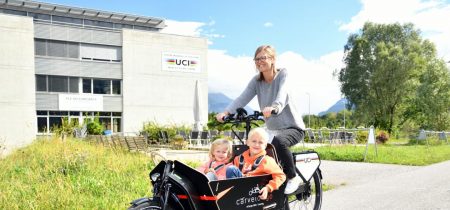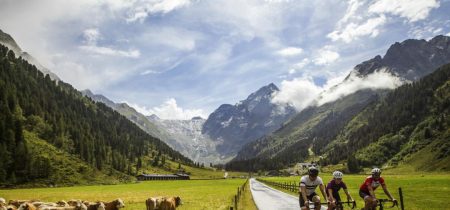UCI Bike City & Region Network
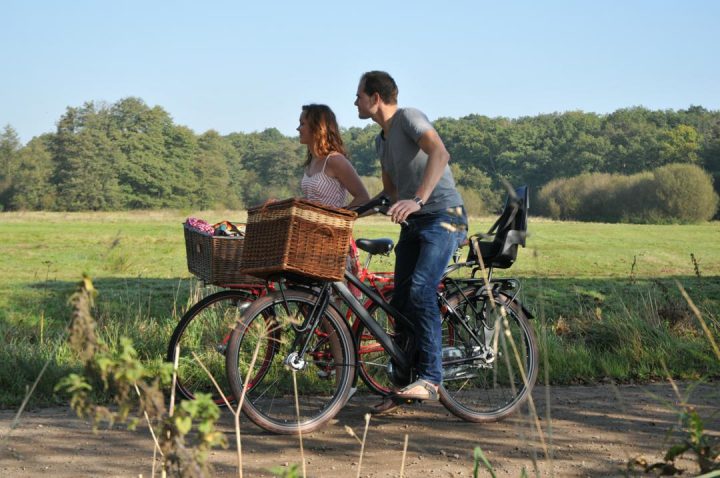 Across the UCI Bike City and Region network, cycling for all actions are being pioneered. © OpFietseDrenthe
Across the UCI Bike City and Region network, cycling for all actions are being pioneered. © OpFietseDrenthe Cities and regions which have been awarded the UCI Bike City or Region label are true cycling pioneers – combing a strategy for elite cycling events and everyday cycling promotion.
By Union Cycliste Internationale (UCI)
The UCI Bike City & Region label is an initiative that recognises cities and regions across the world that are not only investing in elite events, but also developing strategies to improve everyday cycling for all. Intended to ensure that events leave a positive lasting legacy and support places that are embracing cycling, fantastic efforts and projects across the Label’s network can be found. A snapshot of the label holders and some of their key cycling activities is provided below.
2016: BERGEN – NORWAY
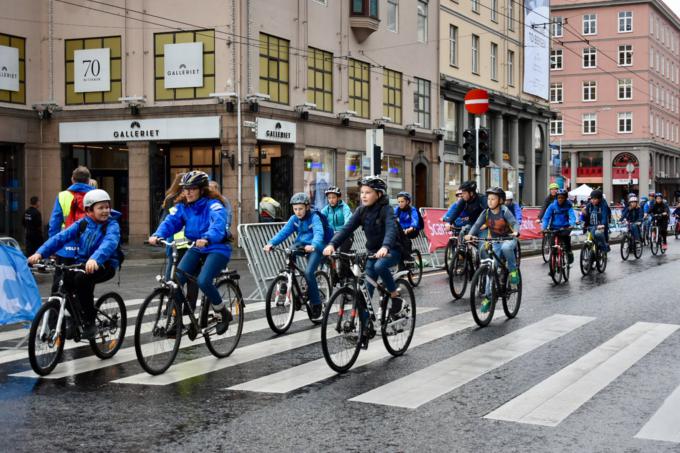
- The 2017 UCI World Championships saw the city celebrate cycling in all forms, encouraging citizens and visitors alike to join in. © UCI
Host of the 2017 UCI Road World Championships, the coastal city of Bergen is known as the gateway to the Fjords and city of seven mountains.
The city promotes cycling as not only a competitive sport, but as a healthy mode of active travel. In 2016 cycling had a 3% modal share of all trips, the city is working towards achieving a 10% share by 2019.
A cycling training programme for children ensures that every year, several hundred little cyclists learn theory and improve their skills, so they can ride safely in their neighbourhoods. Meanwhile projects during the 2017 UCI Road Worlds Championships encouraged participation in cycling amongst elderly residents.
The city also has a strategy to significantly increase bike infrastructure, including a new cycling bridge and new bike routes. Across Norway, including in Bergen, USD 1bn is being invested in new bike paths.
2016: DRENTHE – THE NETHERLANDS
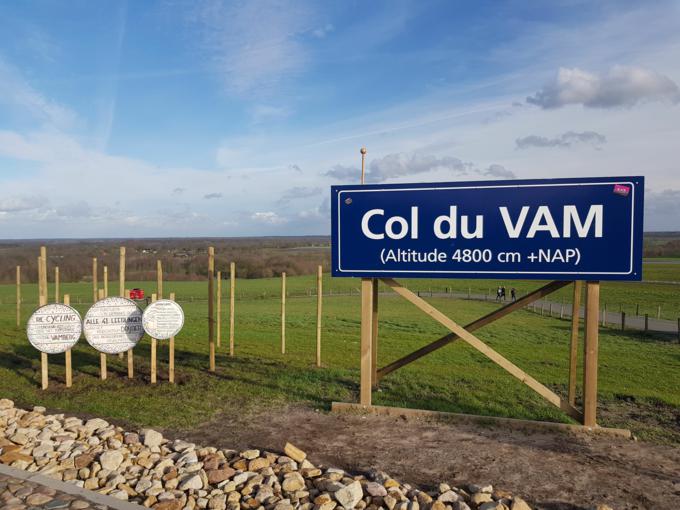
- An artificial hill with dedicated cycling tracks, the VAMBerg has become a focal point for cycling in Drenthe. © UCI
Drenthe has an extremely well-developed cycling culture, in terms of sport, recreational cycling and transport. An outdoor velodrome was recently built in Assen, and cycling to school is promoted through dedicated campaigns, including bike tests for children.
‘Op fietse’ (‘go by bike’), a specific marketing identity for Drenthe’s cycling activities, and Drentse Fiets4Daagse, a recreational event for thousands of bike riders from across the Netherlands, are examples of the province’s commitment to promoting cycling among all citizens and tourists. There are already over 2100km of cycle paths in the region, with cycling not only promoted as a means of transport, but as a way to connect residents with nature.
The province is investing in new cycle routes, including a ‘Fietssnelweg’ (‘Cycle Highway’) between major cities, as well as improvements to cycle routes to schools. Drenthe has a dedicated annual cycling budget of €20m until 2020, with a target to increase bike use by 20% and become the healthiest province in the country by the same year. In 2016, 29% of all trips in Drenthe were made by bike, and the province is working towards a target of 34.8% by 2020. Today, for trips under 3.7km, 44% are made by bike. The road on the ‘VAM Berg’ – the highest point in the region – opened to cyclists in February 2019, and is set to become a focal point for cycling in the region.
2016: LIMBURG-VALKENBURG – THE NETHERLANDS
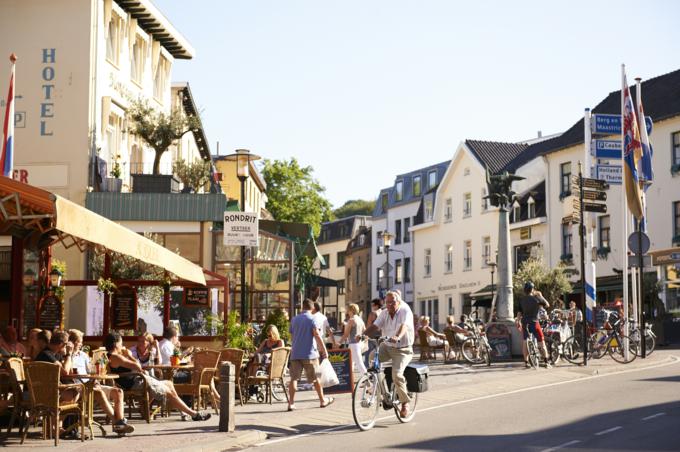
- The cycle friendly city centre of Valkenburg, at the heart of Limburg pictured. © Fotostudio G2 Henry Peters
They say cycling ‘runs through our veins’ in Limburg-Valkenburg; which is very much in evidence with the hosting of five UCI Road World Championships in Valkenburg, most recently in 2012. Each year, the Amstel Gold Race Spring Classic runs through Limburg, incorporating the iconic Cauberg climb, which starts in Valkenburg. In 2018, the UCI Cyclo-cross World Championships were also hosted in the region.
A ‘Cycling Hotel’ and museum are currently being developed in Valkenburg, alongside the permanent Shimano Experience Centre – to open in 2019 – which will further cement the town’s reputation as the main destination for cycling in the area. Elsewhere in Limburg, there are plans for additional sports and leisure cycling facilities. The landmark Tom Dumoulin Bike Park opened in 2017 in the town of Sittard.
Limburg has a long-term strategy to increase cycle use, as well as a five-year investment plan in cycling infrastructure and programmes. Over €34m was spent on cycling infrastructure in 2016 and a strategy is in place to match the national average for trips by bike, which means an increase from 22% to 27% by 2022. Over 100 cycling competitions take place in the province of Limburg each year.
2017: FYN – DENMARK
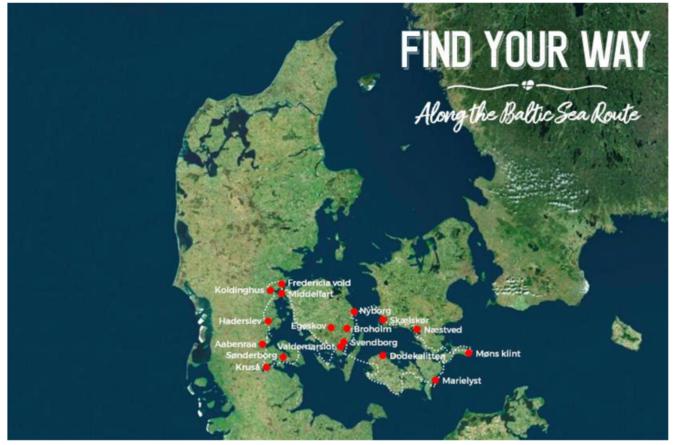
- A map of the N8 cycle route, stretching across UCI region Fyn, taking visitors across a dramatic coastal landscape. © VisitFyn
An island region in Denmark, Fyn is promoting cycling under the Bike Island 2020 strategy, with the aim of becoming the most attractive cycle holiday destination in northern Europe. The strategy includes 12 major initiatives aiming at increasing the levels of cycling within the region, focusing on infrastructure improvements, new tourism partnerships and initiatives, strategic partnerships, as well as targeted communications and branding.
From 1999 to 2002, Odense was the official ‘national bike city’ in Denmark and in 2015 it was appointed the country’s number one ‘Bike friendly municipality’. In May 2018, Fyn saw the opening of the N8 Baltic Sea Route, a 900km sign-posted route taking cyclists through the breath-taking scenery of South Denmark.
After a round of the 2017-2018 Telenet UCI Cyclo-cross World Cup, the 2019 UCI Cyclo-cross World Championships were held in the town of Bogense. The region also hosts numerous elite and recreational cycling events every year, which include the Fyen Rundt, the Bissen mountain bike race, track cycling events and stages of the Tour of Denmark.
2017: GELDERLAND – THE NETHERLANDS
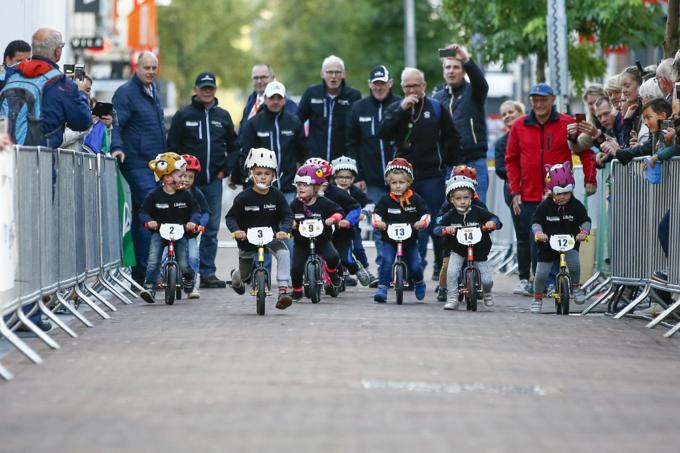
- Gelderland works to link major events with cycling for all actions – pictured here, a children’s bike race during the 2018 UCI Track Cycling World Championships in Apeldoorn. © Gert Bonestroo
Each year, the province of Gelderland, located in the central eastern part of the Netherlands, welcomes a round of the UCI BMX Supercross World Cup at Papendal. In 2018, the UCI Track Cycling World Championships were hosted in the region at the velodrome in Apeldoorn – connecting with initiatives to promote more cycling in the region. In March 2019, Apeldoorn hosted the UCI Para-cycling Track World Championships for the second time after 2015.
The standard for cycling for mobility and recreation across the region is high, with the province committed to developing bicycle use among the population and tourists. Today, the tourist bike network is 6,000km in length, and 90% of the region’s 1,200km of provincial roads have a segregated cycling track. There are 40km of fast cycle highway routes in the province, and this will be expanded by an additional 100km in the coming years. With 31% of all trips being made by bike, the province is working towards meeting a target of 34% of all trips.
More than 90 recreational cycling events took place in Gelderland in 2018; major mass participation events with closed routes include the Ronde van Nijmegen, Jan Janssen Classic and Vale Ouwe.
2017 HEUSDEN-ZOLDER – BELGIUM
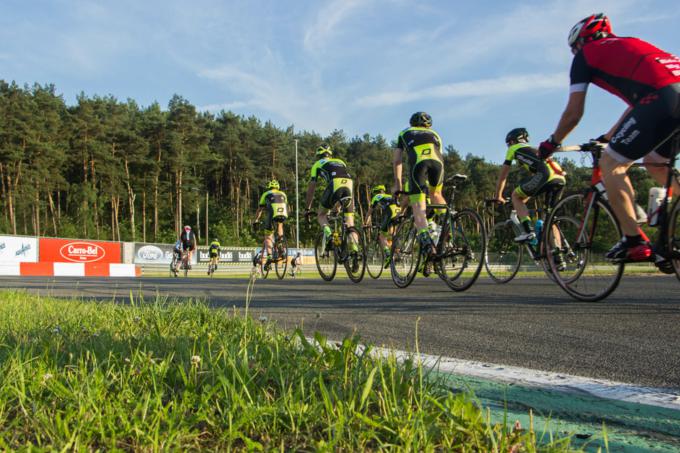
- The 24hrs of Cycling is a major event held at the Circuit Zolder race track – a focal point for cycling in the city. © Heusden Zolder
The municipality of Heusden-Zolder is located in the Belgian province of Limburg. Every year, it hosts rounds of the Telenet UCI Cyclo-cross World Cup and of the UCI BMX Supercross World Cup. In 2019, Heusden-Zolder will host the UCI BMX World Championships.
Cycling policy focuses on sport, tourism and daily cycling. The city continues to invest in cycling infrastructure in the region, while developing facilities for cycling such as new protected bike lanes, charging stations for e-bikes and a cycling highway.
Many mass participation events are hosted at the Circuit Zolder – a race track in the municipality, including the annual ‘24 Hours of Cycling’ event, and ‘Avondfietsen’, where the Circuit is open to cyclists to ride, three times a week, 50 times a year. A UCI standard velodrome is being developed at the Circuit while the municipality is building tools such as digital cycle maps for visitors and e-bike charging stations near popular cycling routes and cycling cafés.
When it comes to children, programmes include bike lessons and exams organised in schools in cooperation with the local police force, mechanical training and secondary school initiatives.
2017: WOENSDRECHT – THE NETHERLANDS
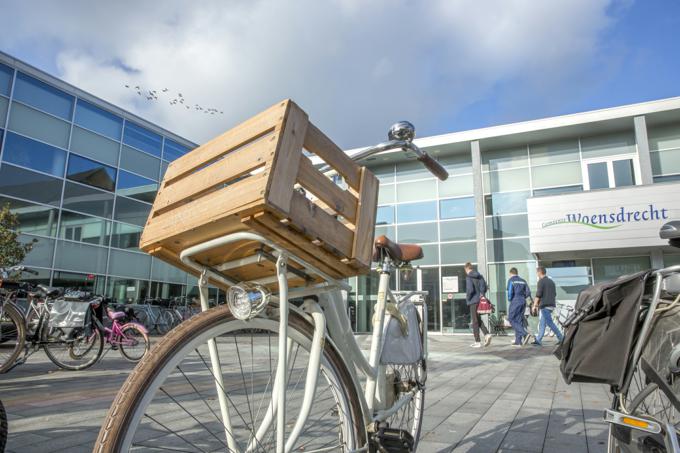
- Woensdrecht is committed to not only hosting elite events, but promoting cycling across the city. © Community of Woensdrecht
Situated in the south of the Netherlands, the town of Hoogerheide in the Community of Woensdrecht, has a long history of hosting the annual UCI Cyclo-cross World Cup. At the heart of the Woensdrecht 2016-2020 cycling plan is the aim of strengthening and expanding local cycling opportunities, while increasing participation in cycling among residents and visitors.
Investments in the region are focused on the expansion of recreational cycle routes, such as cross-border routes into Belgium, improved off-road trails and cycle tracks to key local points of interest. The only cycling college in the Netherlands is located in the community, where students combine their academic education with structured cycle training.
Road safety policy in the region focuses on vulnerable traffic, while the municipality organises road sense training in schools. Meanwhile specific programmes promote physical activity amongst the elderly, the disabled and low-income groups.
In September 2018, the community welcomed the BikeForEurope long distance cycling tour, as the riders travelled across the continent spreading a message of inclusion and unity.
2017: YORKSHIRE – GREAT BRITAIN

- Across Yorkshire, cycling projects are being organised to drive up participation and rates of everyday cycling. © Welcome to Yorkshire
Located in the north of England, Yorkshire has a passion for cycling that is known internationally. More mass participation and closed road cycling events are held in Yorkshire than in any other region of the UK, and local leaders are committed to growing cycling in all forms through various means such as investments in infrastructure, training, education and tourism promotion.
Many of the projects in the region are a direct legacy of the 2014 Tour de France Grand Départ. Since 2015, the Tour de Yorkshire has attracted a global audience and driven up excitement for cycling across Yorkshire and the wider UK.
In 2018, the 50th Yorkshire Bank Bike Library was opened. From these libraries, children and families are able to rent bikes, while community cycle training, bike repair classes and other events are hosted at these sites. The high ambition of the Bike Libraries is to give every child in Yorkshire access to a bicycle.
In 2019, the UCI Road World Championships will be hosted in the region. As excitement builds for this major event, efforts are coming to the fore to ensure it leaves a lasting legacy. The UK government will put £15m of funding into local community cycling projects across the country, helping ensure the hosting of the event drives up rates of cycling in the UK.
2018: SAINT-QUENTIN-EN-YVELINES – FRANCE
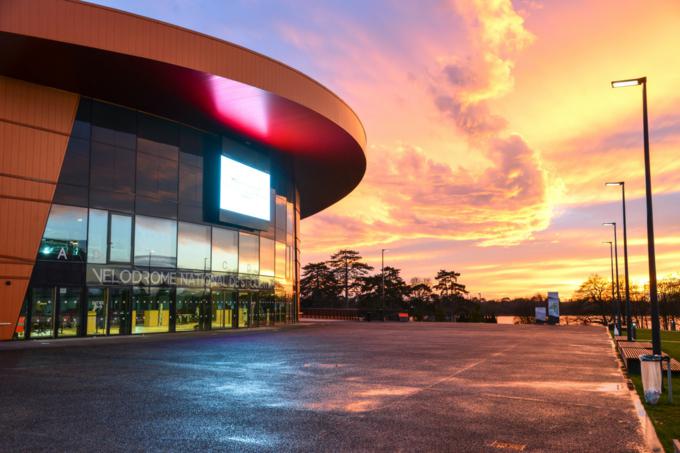
- Pictured, the Vélodrome National, a state-of-the-art velodrome and home to the French Cycling Federation. © J-J Kraemer
Located just outside of Paris in the Île-de-France region, St-Quentin-en-Yvelines is the home of the Fédération Française de Cyclisme (FFC) and France’s National Velodrome. The city has a strong history of hosting major elite and mass participation cycling events; the 2015 UCI Track Cycling World Championships, as well as rounds of the 2018 UCI BMX Supercross World Cup and the 2018 Tissot UCI Track Cycling World Cup. The city will host BMX, track and mountain bike events during the Paris 2024 Olympic Games.
The cycling strategy in the city aims to drive up participation in cycling, grow active mobility and improve road safety. With Paris 2024 on the horizon, the region is linking cycling programmes to the games, to develop competition and cycling for all actions.
Over 400km of bike lanes can be found in the city, with €2m having been invested in the network over the past three years. With such high-level cycling facilities such as the National Velodrome and Colline d’Elancourt area of off-road tracks, a strong focus on the cycle network is to enable access to these sites by bike.
2018: VANCOUVER – CANADA
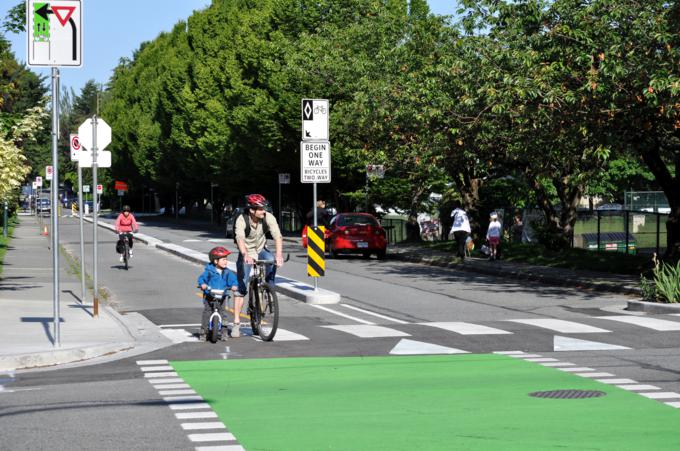
- Vancouver is encouraging a shift towards cycling and walking, creating better infrastructure as pictured. © City of Vancouver
In the Canadian city of Vancouver, cycling is the fastest growing mode of transport – rising from 4% in 2013 to 7% in 2016. In 2020, the city will play host to the 2020 UCI Gran Fondo World Championships, while in 2019, a UCI Gran Fondo World Series qualifier will be held in the city. Mass participation events hosted in the city are used to promote cycling in all forms, and child education programmes are organised as part of the school curriculum.
The city has made a commitment to ensuring that 2/3 of all trips are made by walking, cycling and transit, and today around 45% of the transport budget is spent on active transportation as the city works to create an All Ages and Abilities (AAA) transport network. In Vancouver’s Transportation 2040 Plan, investment in infrastructure improvements to bolster road safety is a major priority. The city has established requirements that new developments provide on- and off-street parking for bicycles, and bike racks are being installed across the city. An annual Walking and Cycling Report Card is published by the city to chart the progress made in growing cycling.


